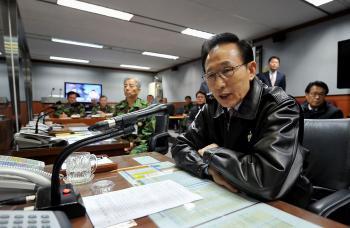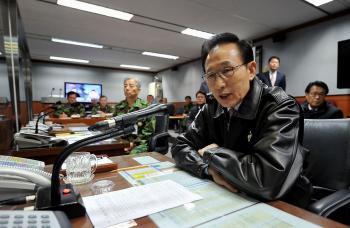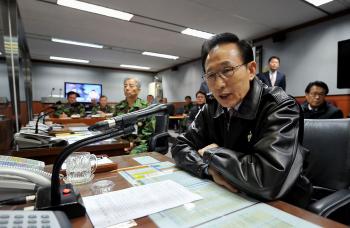[ U.S. Shows Guarded Response to North Korea - NTDTV ]
SEOUL, South Korea—In response to North Korea’s attack on the South Korean island of Yeonpyeong Tuesday—the first military offensive on civilians since the Korean War ended in 1953—Seoul promised to “retaliate against any additional acts of provocation in a resolute manner.”
According to the South Korea’s Joint Chiefs of Staff (JCS), the North Korea military started firing a barrage of artillery shells at 2:34 p.m. local time, on Yeonpyeong Island and its surrounding waters. A least two marines were killed and 13 soldiers wounded, as shells fell on the island inhabited by 1,600 civilians. Four residents were reported wounded. The bombing on the island ended at 3:29 p.m.
South Korea’s military responded at 2:47 pm, firing 80 shells toward the North Korean artillery base on the west coast, and deploying fighter jets to the West Sea. All troops were placed on maximum alert.


